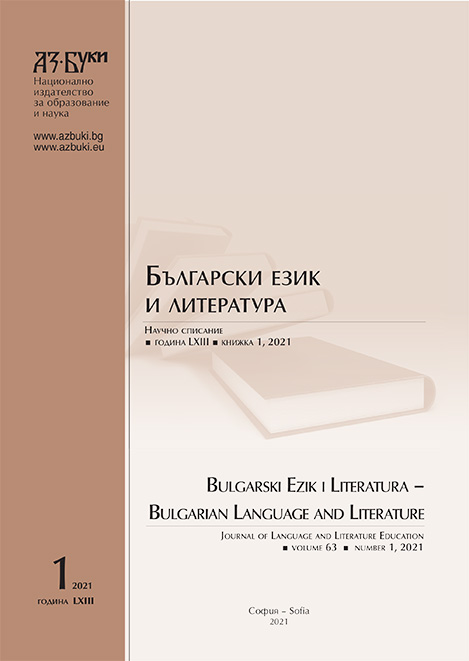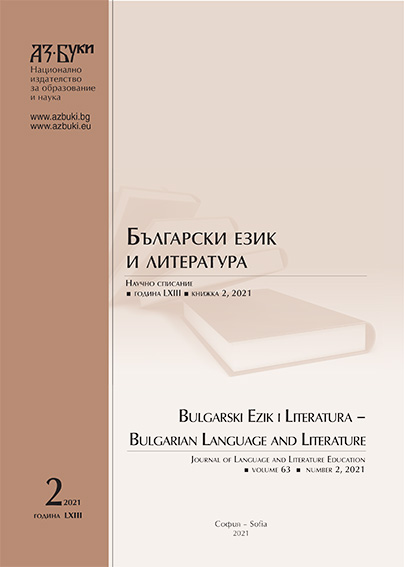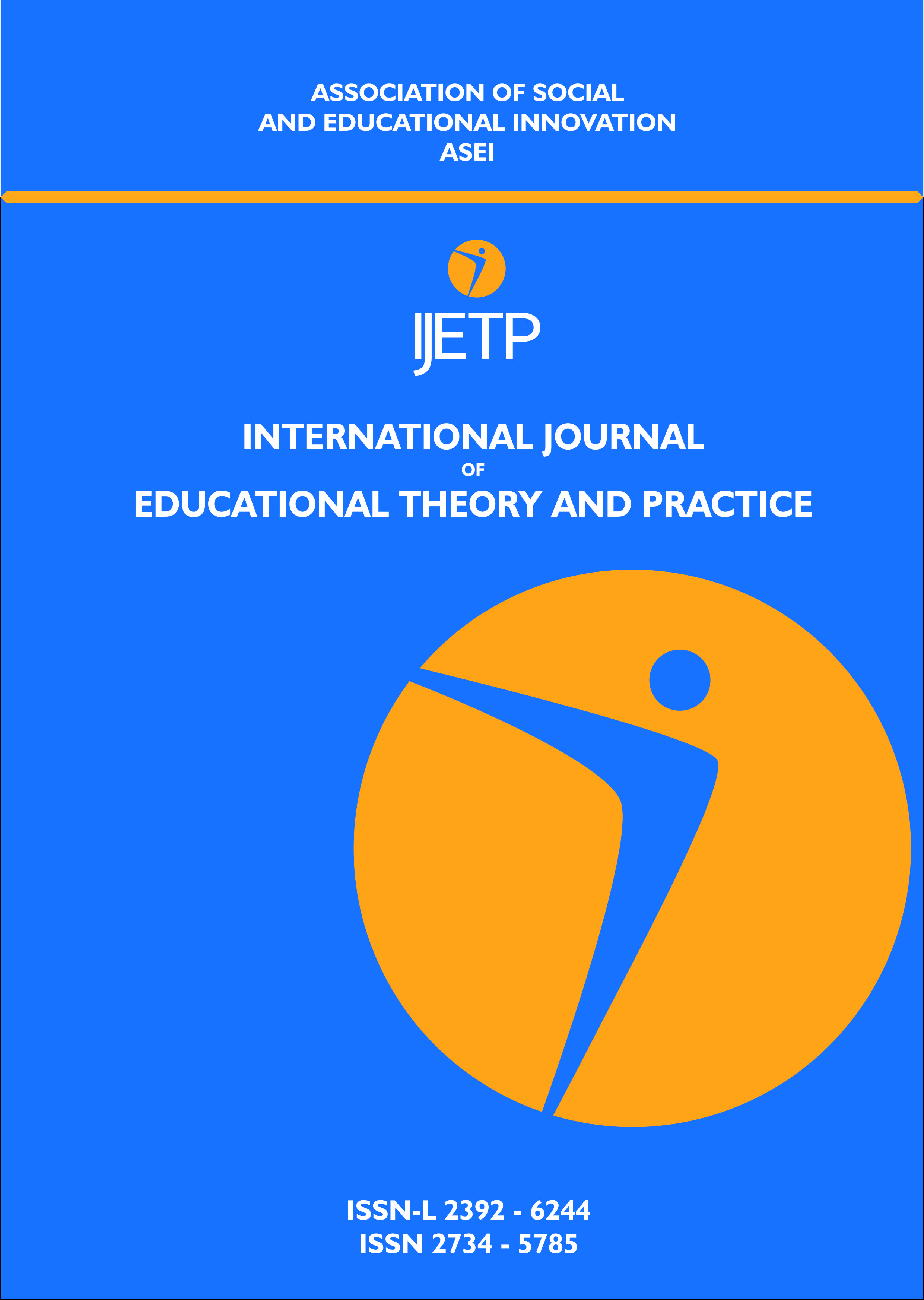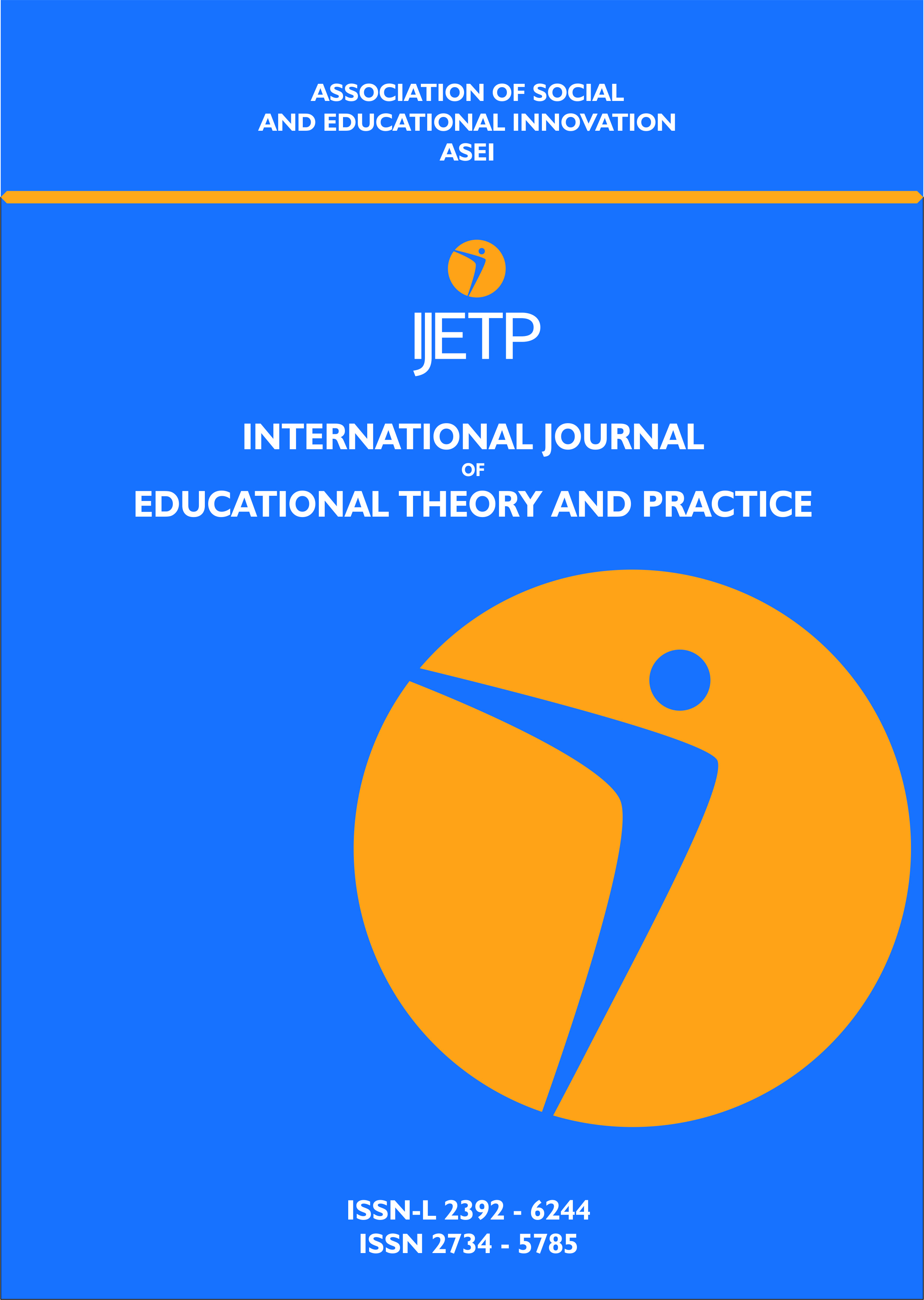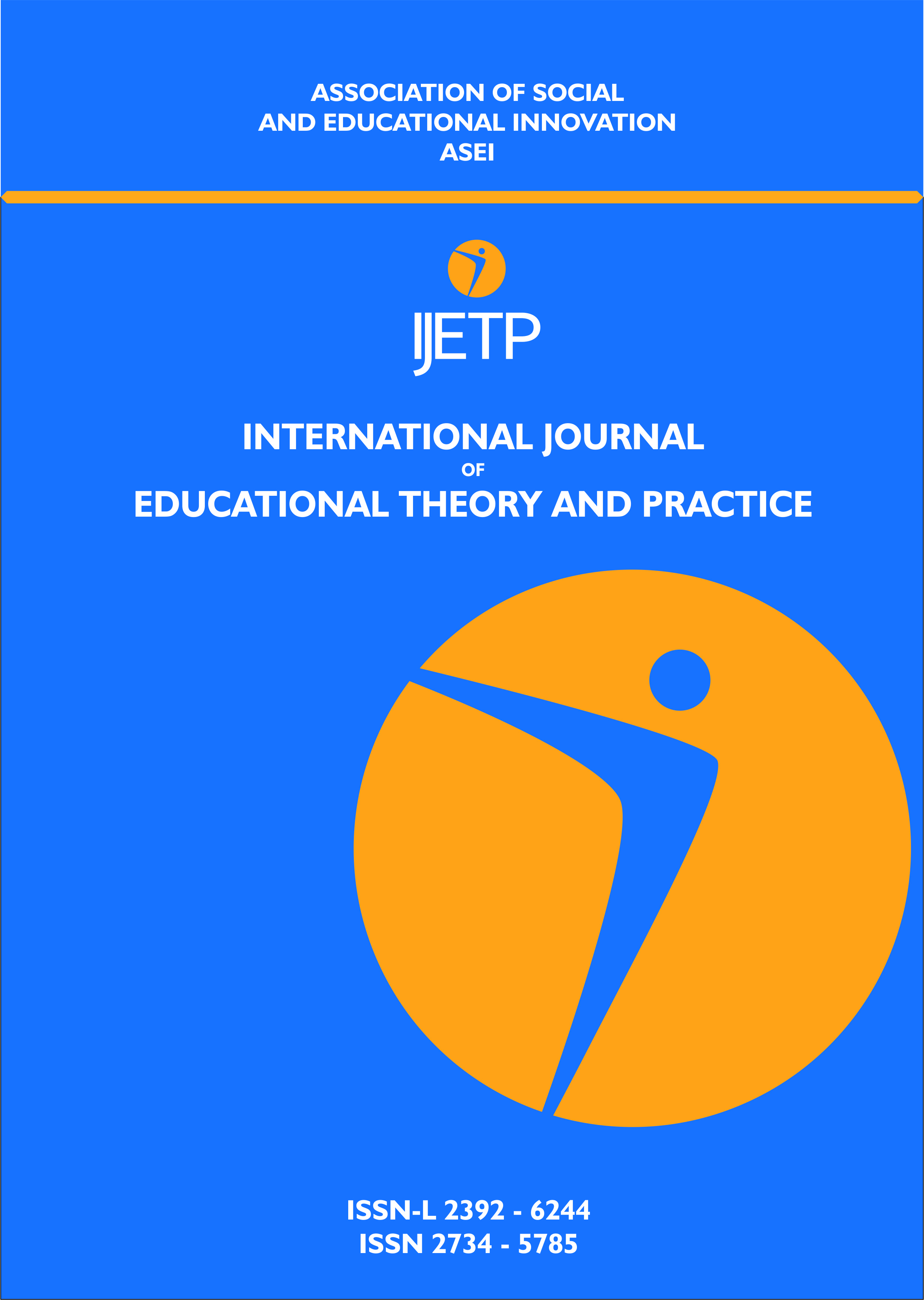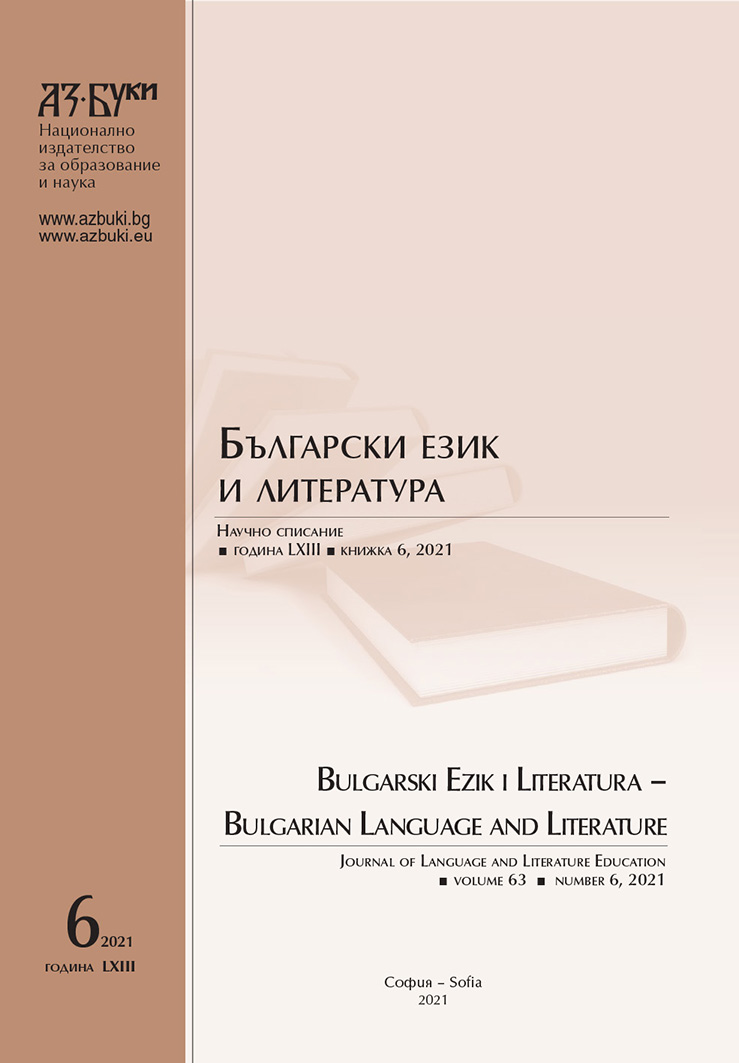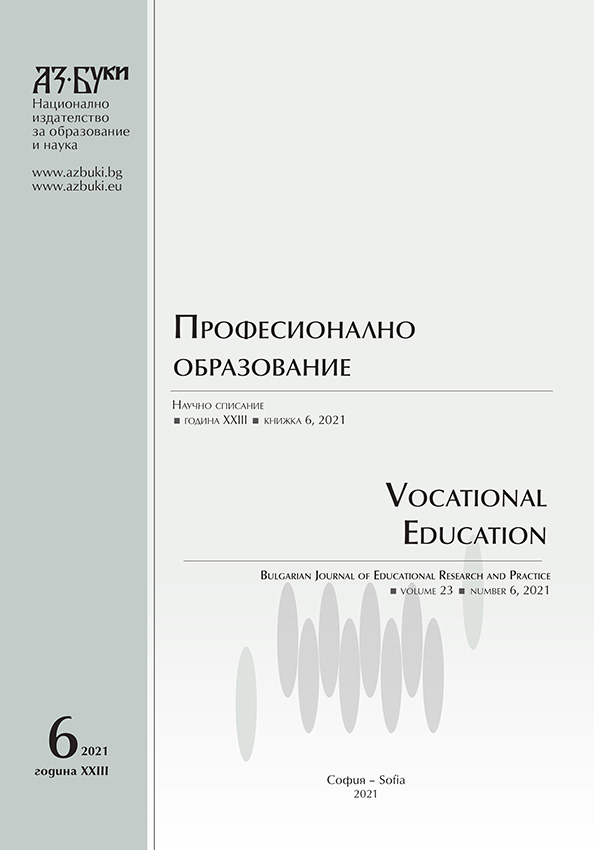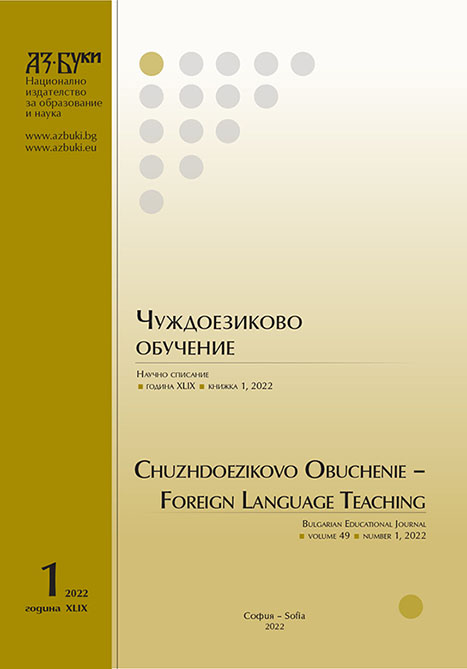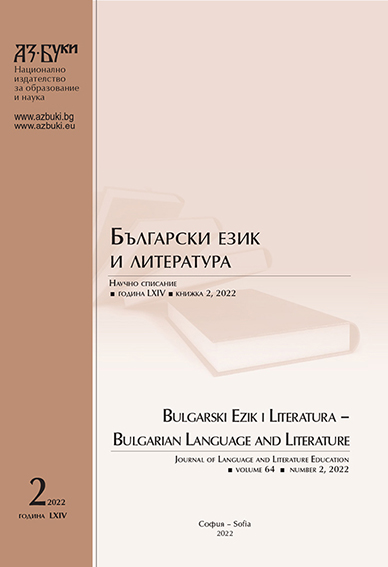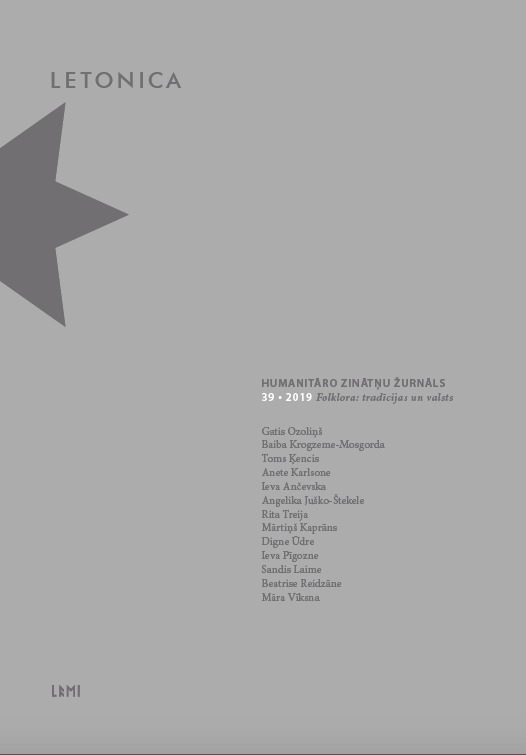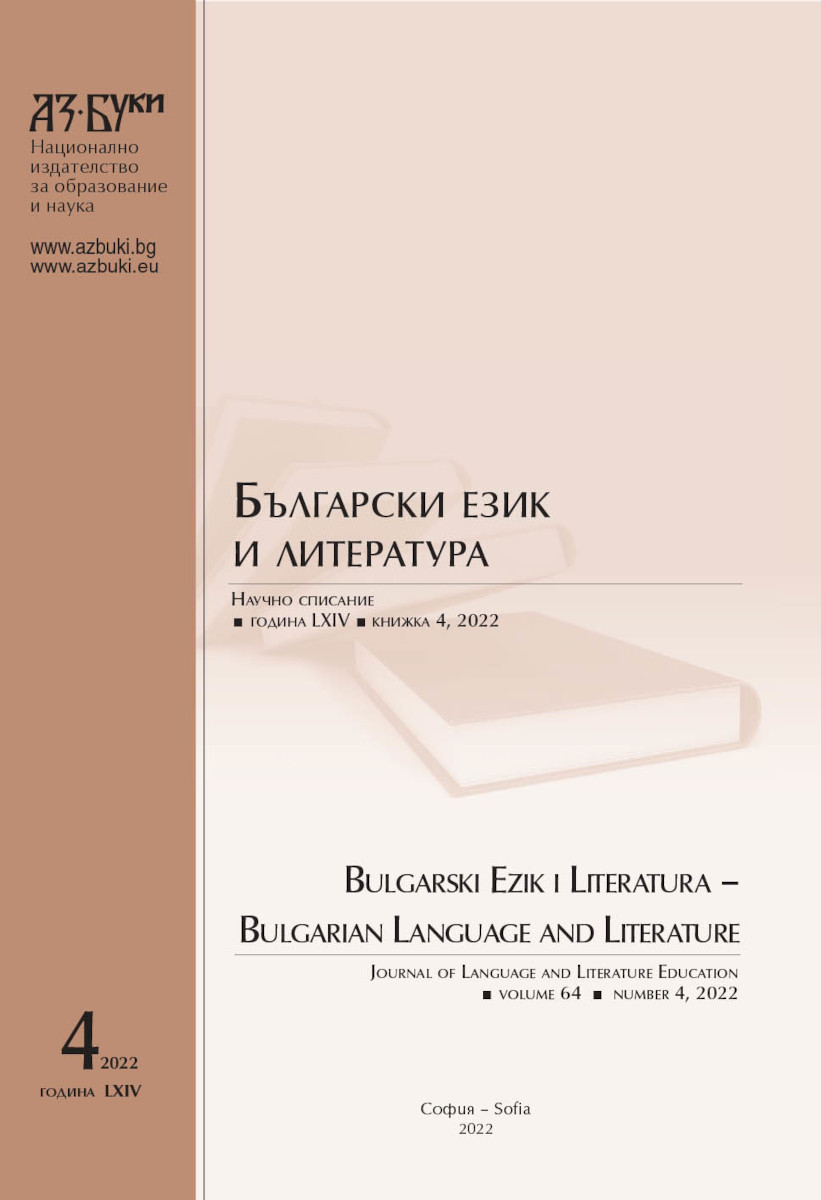Author(s): Sandis Laime / Language(s): Latvian
Issue: 39/2019
In 2014, the Archives of Latvian Folklore started developing its digital archive, which, among other things, offers an opportunity to develop new digital tools and resources for indexing folk narratives. Since the 1850s, a sizeable legend corpus has been documented in the territory of Latvia, and extensive collections have been published. While initiating the development of a digital index of legends, this article aims to consider the most comprehensive collections and publications as of today, as well to characterise the applied systems of classification and indexes. It was in the 1850s and 1860s when the first calls to write down folktales and legends were published in the press, and when the Latvian folk narratives started attracting wider interest of both Baltic German scholars and emerging Latvian intellectuals. In 1887, Fricis Brīvzemnieks published the first academic collection of folktales and legends, which included 186 texts. In this collection, the folktales and legends were classified by the genre and subject. The majority of the folktales (1863 texts) and legends (3254 texts) collected in the 19th century was published in the seven-volume edition “Latvian Legends and Folktales” (1891–1903, 2001) edited by Anss Lerhis-Puškaitis. It was the largest collection of Latvian folklore and one of the most sizeable publications of folk narratives in Europe at that time. In the early 1890s, the popularity of British anthropologist Edward Tylor’s theory of animism was growing. As no particular classification system of legends was approbated in international research circles, Lerhis-Puškaitis developed a unique system of legend classification, which was based on the theory of animism to arrange the voluminous text corpus; however, it fell under criticism in the early 20th century. The largest current publication of Latvian folk narratives (4309 folktales and 3586 legends), “Latvian Folktales and Legends” (1925–1937), was prepared for publishing by Prof. Pēteris Šmits. As for systematisation of folktales, Šmits implemented a state-of-art classification system introduced by Antti Aarne based on the historic-geographic method. Unlike folktales, researchers of legends did not have any internationally applied catalogue of legend types available at the time. Šmits classified the legends into four sections: 1) etiological legends, 2) mythological legends, 3) place legends, and 4) historical legends. The Archives of Latvian Folklore (ALF) was established in 1924 with its main task to collect and archive Latvian folklore, including legends. Along with intense activities of folklore collecting, the ALF was publishing and studying the collected materials, yet no developments toward a legend index were initiated. Having recognised legends as a significant genre for the Soviet ideology, a catalogue was initiated in the 1950s by Herta Vaita (the card index of legends). In the early 1960s Alma Ancelāne engaged in the research and classification of legends, and this also concurred with the discussion activated by the International Society for Folk Narrative Research regarding the development of an international catalogue of legends, which indirectly affected Ancelāne’s work. The card index of legends, which was completed after almost 30 years, covers nearly all of the material held in the ALF, some 57,000 texts. The material was primarily divided into etiological, mythological, and historical legends, whereas a more detailed subdivision was created grouping the legends into several sub-levels based on motifs, types, and occasionally by the themes included therein. Although Ancelāne’s card index greatly helps in orientating oneself to the collection of legends held in the ALF, it can hardly be considered as a fully completed index of motifs or types of Latvian legends. After WWII, Latvian émigrés also contributed to the classification of legends. In 1981, Lena Neuland published “Motif-Index of Latvian Folktales and Legends”, which followed the pattern of “Motif-Index of Folk Literature” by Stith Thompson using both Thompson’s names and numbers of the motifs. In 2014, the digital archive of ALF, garamantas.lv, began providing options for the development of new digital tools and resources in the research of folk narratives. Much has been accomplished in the field of legend research by now, yet there is still much to be done. A sizeable number of legends have been collected, and a large portion of them has been published, but this material has not been compiled in a single data corpus. A motif-index of Latvian legends has been developed which is accessible to the international community of legend researchers, but the material it covers equals less than 5% of the entire text corpus. Likewise, a type-index of Latvian legends should also be developed. In addition, an equally wide selection of Latvian legends should be published in English. By developing a mapping tool, the digital archive would allow for the visualization of the geographical distribution of each motif and type. There are plenty of plans and intents to implement. The first impressions gained from an implementation of those will be addressed in a separate article.
More...
